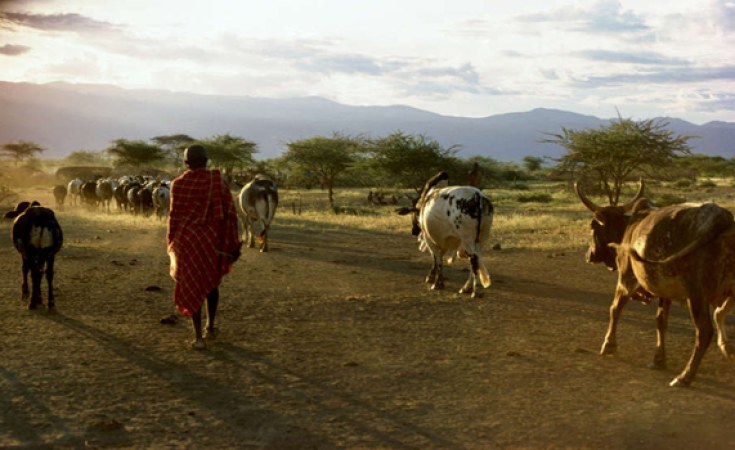In June 2022, residents of Loliondo division in northern Tanzania's Ngorongoro district protested what they said was a government move to evict them from their ancestral land in the name of conservation. The government responded with excessive force, leading to two days of violence.
The government should halt the violence, intimidation, and forced evictions. It should work with these pastoralist communities on a plan that respects their right to the land, heeds their traditional practices in preserving the natural ecosystem, and establishes how to work together to protect the area.
What is happening in Loliondo is not unique, and the local communities have cause to fear for their land and livelihood. The Maasai people in northern Tanzania have a history of being pushed off ancestral land to make way for so-called protected areas, including the famous Serengeti National Park. Since at least 2009 the government has used a range of abusive tactics to displace about 150,000 people across Ngorongoro district, a tourist hotspot. And last year, the government has restricted their access to important grazing areas and water sources, potentially displacing up to 70,000 residents of Loliondo.
In 1951, 400,000 hectares of Loliondo division in Ngorongoro district were designated a game-controlled area, set aside for hunting wildlife, while the Maasai retained the right to live and graze their herds in the area. Since then, however, the government has forcibly evicted thousands of Maasai to make way for trophy hunting, arbitrarily arrested and unlawfully imprisoned residents, burned their homes, destroyed food stocks, and confiscated their livestock.
On June 6, the government, without consulting affected communities, declared the conversion of 150,000 hectares of land used by the local community, a game reserve. By the morning of June 8, dozens of police, military personnel, and game rangers, arrived and set up camp around Ololosokwan.
On June 9, the authorities summoned 10 community leaders to a meeting, then arrested and detained them about 350 kilometres away, near Arusha. They would be charged with criminal offences and jailed for up to five months.
The next evening, the security officers and rangers began placing beacons to demarcate the conservation area, marking areas where people could live, and areas reserved for wildlife. Residents perceived this as a first step to eviction as it cut them off from water sources and grazing areas and carved off some homes.
The following morning, when residents tried to remove the beacons, the security officers fired teargas and rubber bullets, injuring at least 30 people, witnesses said, including women and children. On June 10, Garlius Mwita, a policeman, was fatally shot with an arrow, the police said.
On June 17, the authorities charged 27 people, including the 10 community leaders, with Mwita's murder and conspiracy. Three were released on bail in August and on November 25, the prosecutors dropped the criminal charges and released the others. Hundreds fled during and after the violent clash in June. Some sought refuge in neighboring villages, while others crossed into Kenya, including to seek medical treatment for serious injuries. Some have since returned.
The government's actions have disrupted social support systems, weakened local safety nets, and affected more impoverished members of the communities, especially older people, those with disabilities, and single female-headed households.
The International Union for Conservation of Nature and other conservation organizations point to the "benefits" of well-managed trophy hunting as an effective conservation tool. Nonetheless, the group condemned the recent violence in Loliondo, saying it considers "any violence against or forced eviction of indigenous peoples and local communities to be entirely unacceptable." It urged the government to compensate those harmed and protect the Maasai's rights.
But the government has continued to forcibly evict Maasai from the area and restrict their access to valuable natural resources they have used for generations.
Oryem Nyeko, Researcher, Africa Division
Juliana Nnoko-Mewanu, Senior Researcher, Women's Rights Division


